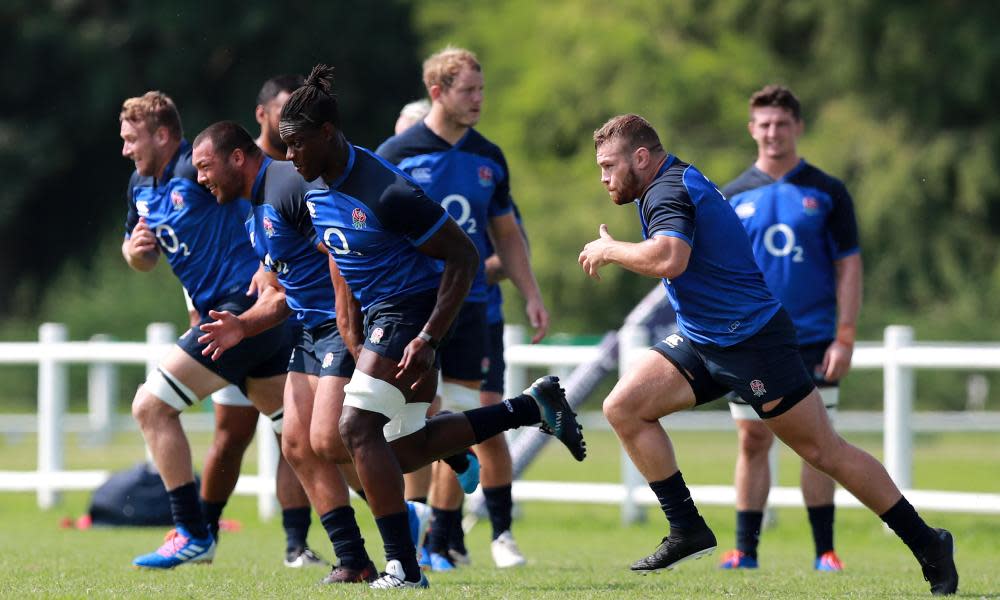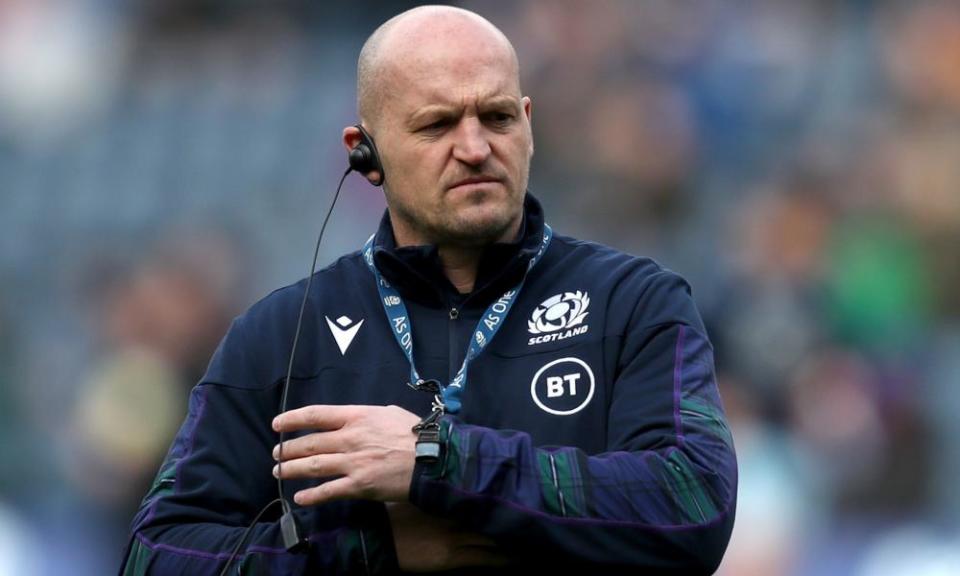Summer rugby union could be the chance to deliver best of both worlds

Decades from now, when people ask how professional rugby union was decisively shaped, it will boil down to one simple question: did a forward or a back win the argument? In the northern hemisphere forwards have traditionally held sway for the most part, helped by the winter mud and rain that inevitably alters behaviour. But what if summer rugby becomes a regular occurrence? How might the game develop then?
Dinosaurs did not respond hugely well when faced with sharply changing climatic conditions. It may yet be a similar story for a few lumbering club forwards if they are suddenly required to play the majority of their rugby on fast, firm surfaces in temperatures nudging 27C. It’s rugby, Jim, but not as we know it.
Which helps explain the contrasting reactions to reports that regular summer rugby union in the northern hemisphere may become a reality if a summit meeting on 15 June produces the holy grail of a synchronised global fixture schedule.
Related: Premiership will not adopt World Rugby’s law trials to reduce virus risk
“I really hope we do get an aligned calendar,” said the Scotland coach, Gregor Townsend. His one-time Lions captain Martin Johnson could scarcely have been less impressed. “I hope they are not going to start playing rugby in the northern hemisphere summer,” the former England lock told the Daily Mail. “That would be a disaster. It is not a summer game. People want to play rugby in the winter in this country.”
Guess what? Townsend was a ball-playing fly-half while Johnson was one of the finest second-row forwards the game has seen. Both of them know plenty about playing and managing at the highest level yet they are poles apart when it comes to one of the modern game’s fundamental debates. If their diametrically opposing views are any guide, finding a consensus may be tough.
In some ways it is becoming a redundant argument: as the past month and a half of gloriously sunny weather has underlined, a large chunk of the season already takes place in summery conditions. The Premiership final was to have taken place on 20 June. Assuming Covid-19 precautions permit, England’s leading clubs will train and play through July and August without a murmur.

On the plus side, how many vehemently hate the idea of a dry ball, more scope for the speedsters to shine and a nice cool post-match drink in the early-evening sun? There is not an attacking playmaker in existence who would miss the freezing fingers, slippery ball and icy fields of winter if the chance materialised to make a living in more conducive conditions. Name the visiting spectator who would be more inclined to drive to Sale on a dark, cheerless Friday night in January than a pleasantly warm June evening.
It is at this point, inevitably, that the cacophony of counter arguments kick in. There are a vast array of other things to do in Britain and Ireland in summer. As rugby league has already found, union would be required to take its place in a lengthy queue, not least in the newspapers.
The offer of strawberries and cream and a glass of Pimms at Kingston Park is not going to divert the majority from Wimbledon and Lord’s. What happens to those who love their cricket AND their rugby? What are people going to do with themselves once the clocks go back and there is no rugby to fill the wintry emptiness? Who would want to sign the potential death warrant of tight forward play and play a sweat-soaked version of basketball?
Different strokes for different folks. Some may also contend that the decisive tug of war between forwards and backs has already been settled. When the monarch of the glen, Sir Bill Beaumont, narrowly beat off the challenge of the former Argentina scrum-half Agustín Pichot to remain as the chairman of World Rugby it was not on a campaigning platform of piña coladas at Murrayfield or pitch-side hot tubs in Cardiff.
But might it yet be possible to deliver the best of both worlds? The community and schoolboy game would stay where it is, offering more chance to support local and schools rugby rather than it being endlessly overshadowed by the pros. Television will still want to screen the Six Nations championship in April and no one objects to October internationals when the Rugby World Cup is happening.
The Premiership clubs, collectively losing millions even before the shutdown, would get the chance to see if the unthinkable is actually a better financial bet. They may find that early-evening kick-offs (to avoid the warmest parts of the day) increase the number of people who want to watch, both at home as well as live.
With firmer pitches, a more positive spectacle and greater incentives for spectators to hang around, it would also be easier to play double- and triple-headers, with women’s rugby and sevens literally enjoying their moment in the sun. There would be fewer clashes with the commercial leviathan that is the Premier League and between club games and Tests. Rugby would also suddenly look different, shorn of its occasionally drab winter plumage. There would be international matches with both sides at their peaks, rather than one or the other limping to the end of their seasons.
Stick it all together and what have you got? A sport with a growing identity crisis, possibly, but also one with a perfect opportunity to pursue something different. Is there anything to be lost by giving it a go in 2021, with the post-Covid calendar requiring a radical redraw anyway? And then extending the experiment for the remainder of the 2023 World Cup cycle? It could just deliver collective benefits for backs and forwards alike.
Second chance?
These are not easy times for anyone, let alone someone who has had to do as much recent soul-searching as Rob Howley. The former Wales assistant coach’s nine-month ban for betting on the outcome of rugby matches expires in mid-June and anyone who has read the harrowing account of the family pressures that drove him to seek a degree of solace in gambling will wish him well wherever life now takes him. If he can add a successful new chapter to his coaching career it will rank among the game’s most emotional comebacks.
And another thing …
If there is a significant spike in rugby’s popularity when the sport resumes it will be partly down to one man and two dogs. Just now Andrew Cotter could commentate on the journey of a pair of underpants from bedroom floor to washing machine and still stand a fair chance of going viral. If any television broadcaster can be guaranteed to enhance a blank behind-closed-doors canvas it is Cotter.

 Yahoo News
Yahoo News 
